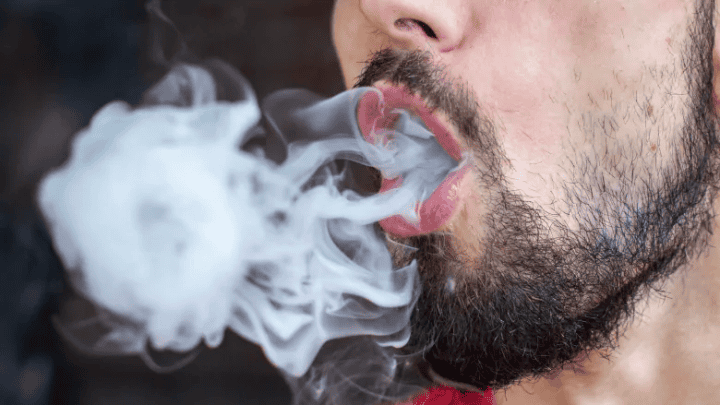
B.C.’s top health official says it’s just a matter of time before symptoms are reported in Canada
The serious lung illness affecting hundreds of people in the U.S. who vaped cannabis-based oil is giving Canadian health officials pause as that country prepares to allow the sale of vaping products in its legal marijuana market.
No illnesses have yet been reported north of the border, but they are monitoring the situation closely, and British Columbia’s top health official says it’s just a matter of time before symptoms are reported in Canada.
“There is no doubt in my mind that we will see cases pop up in Canada in the next few weeks now that we have started really looking for it.” said Dr. Bonnie Henry, British Columbia’s provincial health officer.
Canada last year became the second nation — after the small South American country of Uruguay — to legalize and regulate marijuana, but legal sales of edible and vaping products are not due to begin until later this year. The illicit vape market in Canada is estimated to be worth about $1 billion, said Megan McCrae, board chair of the Cannabis Council of Canada, an industry group for licensed pot growers.
In the U.S., the outbreak of the lung illness began in the Midwest in July. Health officials on Thursday said 380 confirmed and probable cases have been reported in 36 states and one U.S. territory. Doctors say the illnesses appear to be a response to the inhalation of a caustic substance. Symptoms have included shortness of breath, fatigue, chest pain, diarrhea and vomiting.
Many stricken adolescents and young adults, previously healthy, have required machines to help them breathe. Six deaths have been reported, all adults and at least some with pre-existing lung problems or other conditions that may have made them more susceptible.
‘We’re on the lookout’
No cause has been established, but some researchers suspect vitamin E acetate, which recently has been used as a thickener, particularly in black market vape cartridges. Suppliers say it dilutes vape oils without making them look watery. Inhaling oily vitamin E droplets into the lungs can trigger pneumonia.
That could give all the more reason to legalize and regulate the products, McCrae said.
“Most of these issues coming out of the U.S. are related to black market product and what black market producers are doing to cut corners,” she said.
Health Canada has asked vape users to report any symptoms, and Henry said she and her counterparts across the country are sending notices to doctors on what to look for because many don’t think about asking their patients if they vape.
Maryse Durette, a top spokeswoman for Health Canada and the Public Health Agency of Canada, said the country has restrictions on e-cigarettes and vape products that contain tobacco, including a minimum age of 19 to buy them and bans on lifestyle promotions and advertising that appeals youth. But she said it isn’t clear why no cases have appeared.
“We’re on the lookout, heavily,” she said. “We have rules in place that might prevent for this kind of product to come in Canada. But the border being what it is, the internet being it what it is, people ordering what they want on the internet, we just have not had any cases in Canada yet.”
The worry could certainly dampen demand for the devices just as Canada is about to legalize their sale. According to 2018 figures in U.S. states which had legalized cannabis for medical or recreational use, the devices were the second most popular category of sales, at 21%, behind flower at 46% but ahead of edibles at 11%, according to Deloitte.
Vaping deals underway
In anticipation of a similar demand, several Canadian cannabis companies have recently struck vaping deals.
In July, Vancouver-based Auxly Cannabis Group Inc. announced it received a $123-million investment and the global licences to vaping technology under a research and development partnership with tobacco giant Imperial Brands. In June, U.S. vape maker Pax Labs Inc. reached a partnership with four Canadian licensed producers — Aphria, Aurora Cannabis, Organigram and Supreme Cannabis — to allow them to offer their cannabis concentrates in pods that work with their devices.
Henry said she has long feared the long-term health implications of vaping, which has sometimes been portrayed as a healthier alternative to smoking.
“Any time you are inhaling chemicals into your lungs, you don’t know what’s in those chemicals,” she said. “Certainly, from the unregulated a lot of what is still on the market are ones that are being produced in China where there is really a lot of stuff in them and you don’t know what it is, so I suspect it is something toxic in the products in the many different liquids that are being used.
Anne McLellan, the former Canadian health, justice and public safety minister, put it this way: “The message in public health is, you shouldn’t do this until we know a lot more.”


